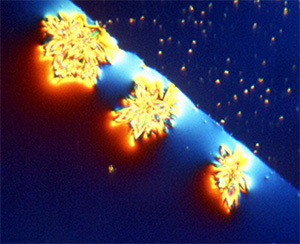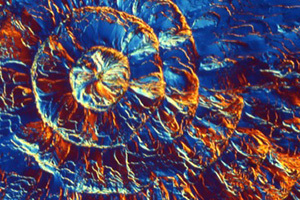Many of us complain that have we don't have enough energy, we're tired all the time. Short of there being a medical reason for our fatigue, we can always find a way to replenish ourselves. I certainly have more energy ups and downs when I have lots to do. then I feel overwhelmed with how to generate enough energy to finish my day. And that afternoon cup of coffee is not the answer. I know many ways to replenish myself, but sometimes don't take the time when I need to the most.
One way that I've learned to nourish myself energy-wise is to set a simple measurable goal and test it out. Is it walking, taking a glass of water, or sitting still and meditating?
How your cells produce energy
First of all, everything in your life, at a cellular level, depends on molecular energy, which means ATP (adenosine phosphate). ATP keeps you breathing, your heart beating and muscles contracting, thinking, speaking, and genes expressing themselves to name a few -all of these use lots of molecular energy.  ATP magnified 30 times
ATP magnified 30 times
Our bodies use about 1000 molecules of ATP every second. Since we don't have much ATP stored up and readily available, our cells have several ways to produce it. The quickest way is from the phosphocreatine stored in our cells - that's what's used when you sprint or life weights.  Phosphocreatine
Phosphocreatine
The most efficient way your cells refuel is when they are able to transform the glycogen stored in your liver and muscles into energy. The requires oxygen (aerobic respiration) and you help this process by being relaxed and breathing in lots of oxygen. When your body is tense, you're using up energy holding those muscles tight, so one key point to remember to have more energy, find ways to release your tension, breathe, and relax
Step one -- Set aside 15 minutes a day to replenish yourself. Test a different strategy each day to see what works for you.
1. Take a quick walk.
When tired, a short walk for about 15 min will generate about 90 min energy. And though you are using energy to walk and may not feel like it when you are tired, soon you will discover the aftermath of the walk, you are refreshed and your cells are happier too for their stretch and breath.
2. Meditate
Sit quietly and relax your mind, your muscles also relax plus you are bringing much needed oxygen to your cells. When we are tense our cells become starved for oxygen and shift to the very inefficient way of producing ATP. Remember that when you breathe deeply you are giving your cells the get-go signal to make a lot of ATP - 15X more than when you are tense.
3. Write what's bothering you
Frequently our tension and stress is due to the meanderings of our mind, some worry or past interaction with someone. By the way, our bodies don't know the difference between what we are imagining (worry, fears, embarrassment etc.) or what's real. Psychologist James Pennebaker at the University of Texas came up with a now-proven strategy to release mental tension - writing for 15-20 minutes for 3 or 4 days about what is bothering you or what's causing you the most stress. He began this line of research by having college students write what secret or shame they were hiding and wouldn't tell anyone. No one else has to read it. Their immune systems improved. From a healing perspective, results reported in the Journal of the American Medical Association by Dr. J. Smyth and colleagues were pretty phenomenal when they had individuals with chronic health conditions do this simple experiment - write for 20 minutes for 3 consecutive days about their most stressful life experience. People with asthma improved their lung function while people with rheumatoid arthritis had less pain - the benefits lasted 6 months! One explanation for these impressive results - by writing what was bothering them the most people released their stressful held-in tension.
4. Drink a glass of water
Dehydration is one of the most common causes of fatigue and so easy to remedy. Our cells need to have fluid to do their life-enhancing work so sipping some water helps them and you. Get about 8 glasses of water a day and notice the difference in your energy. Try putting a sprig of mint or a slice of peach in the water to give it more taste. I do not like plain water.
5. Dance, do yoga, tai chi or qigong
Getting moving helps your body refuel with oxygen and release tension. Find some fast-paced music to put you in rhythm. Yoga stretches and can be relaxing, a different form of exercise. And the moving meditative practices of tai chi and qigong both are considered to be aerobic so you are breathing more deeply.
In the end, you are your own guide and scientist to find the best ways to help you replenish yourself. The ways are really unlimited -- walk in nature, talk to a friend, receive some hugs, bake cookies, sip some green tea or hot chocolate, turn off the news. Here are a few more resources. How about sharing what works best for you?
Other RESOURCES:
Cell energy production
This Is What Happens To Your Body When You Exercise
10 Natural Ways To Give Yourself An Instant Energy Boost
